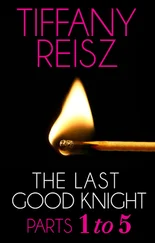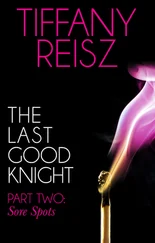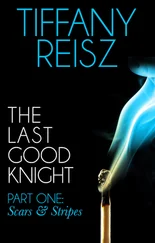When Loren informed her he was taking off for the main resort to talk with Steve, she frowned.
“I need you here.” A long line of applicants snaked out the door and around the building. Just like a man to take off when everything was at crisis stage. “We need to hire workers for cleanup. We need to draw up supply lists. I’m thinking we should look into those solar generators someone mentioned. When do we go back to pre-electric conditions? What’s our new policy on WiFi?”
“You’ll figure it out, Titi.”
“At least take your cell phone so I can get hold of you.”
Alone, Loren took a large piece of rolled-up paper and made his long, slow way around the island till he reached the camera. It had been put back in its exact spot and resumed its regular scan of the beach. Standing behind it, Loren looked out at the view that had so hypnotized him long ago, and found that, unlike him, it had not diminished a bit from its former glory. He stepped forward in front of the camera for the first time. Anathema to his aesthetic that an artist appear in his own work, but finally emotion and human need must outweigh art. While he knew there was sound available, in his imagination this was strictly a silent film act. So often the restrictions of art come from within the creator rather than from the outside world. This was simply the only way he could do it. He unrolled the paper and held it up across his chest.
I’m sorry, Lilou.
Your father loves you.
* * *
They stood on the trash-strewn beach, wilted flowers studding the sand, watching the last group of paparazzi pack up to leave. Loren looked at the small group assembled before him with the delicate sadness one reserved for children one was hiding a terrible truth from, but the terribleness was all reserved for him: these people, recent strangers, sudden family, would be his last guests. He already felt the nostalgia of their departure and his own.
“I’m going to hitch a ride to the main resort,” he said. “I’ve got business with Steve about the new boat.”
Everyone nodded and moved off, preoccupied with plans of leaving. None of them had slept much in days; most were contemplating taking naps for the rest of the afternoon.
Still, Ann hung back as Richard left for their fare , and Javi chased Wende to the kitchen.
“What?” Loren said. He’d packed a small bag with his mask and flippers.
“Maybe I’ll come along?”
“No.”
She smiled uneasily, studying him.
“Do you want me to bring back something for you?” he asked.
“Yourself.” She kissed his cheek. “Bring yourself.”
“Our time together has been special.”
Ann was crying. “No. Yes. No.”
She had been monitoring viewer numbers from the concert and was idly watching the regular day’s broadcast (thinking with a heavy heart of when she would be watching it from back home) when Loren walked on camera and held up his sign. What were the chances that Lilou would be watching for that scant thirty seconds? The sight of his desperation undid her. Quickly Ann hit the record button. Maybe she would send the clip to Lilou? Maybe the direct message would accomplish what she herself could not?
* * *
He got the dive boat from Steve with the promise to return it in the late afternoon. The story that they were underequipped after the festivities was a plausible enough one. If there was one bit of unfinished business, it was Steve, and Loren briefly considered sinking the boat in revenge, but he didn’t. It was important to be bigger than that in the end.
Midafternoon he had just rounded the north end of Kokovoko Island, approaching his favorite diving spot in all the Tuamotus: the Great Shark Wall.
The great howling silence had started with Bette’s death and never came to an end. A monolithic silence, inescapable, it became the most permanent thing in his life. The cliché was a lie — time did not heal; it just swallowed other things into itself. He could laugh at a joke, or flirt with a pretty woman, or gaze at a sunset, and suddenly the loss would come down on him like a hammer blow. One day, one week, one month, year, decade — it made no difference. It was as painfully raw as yesterday. He admired but did not trust those who moved on, remained unchanged, stayed optimistic. Unkindly, he judged they had simply not loved enough. Maybe it was a French thing.
Solitude poured over him like balm, as naturally as if this had been the only life he’d ever known. As if he had been a fisherman, which in a way he had been, but the quarry was far more elusive than anything that could be caught on a hook.
He cut the motor and dropped anchor. The sun beat down like a shiny brass drum, forcing him to the absurdity of putting on a hat and sunglasses. He couldn’t stand sun and heat like he used to. He ferreted out the bottle of absinthe at the bottom of his bag, nested like a poisonous green viper in his beach towel.
The first couple of swigs burned his ulcers so badly that his eyes stung, his tongue curled up like a snail touching salt, but as the diabolical spirit worked its magic, he no longer felt pain in his mouth or, eventually, in the rest of his body. No doubt it was the exoticism of absinthe that had drawn Ann, although she couldn’t possibly have guessed that it was a seductor’s drink. It called out to those who wished to be enchanted. He drank it neat, which was the secret of all true absinthe drinkers — one did not need all the appurtenances. The ritual of the glass, the spoon, the sugar cube, and water was strictly for initiating newcomers. He had not told Ann the whole of the Oscar Wilde quote because there were some truths one wished to keep for oneself.
The boat rocked softly. Emptiness had made him fall in love with the South Pacific. Until then, he had not fully realized the extent of his unease — how he always felt crowded by others jostling him in line, filling his ears with their thoughts. On the islands, he knew himself for the first time — the man who wasn’t defined by being father, husband, artist, lover, or even hotelier. The place allowed him to take his own measure. Before, he never had paid much attention to nature other than enjoying the sun on his back while on his way to somewhere important. On the islands, the sun on his back was the important thing. Nature exhibited its own personality: the deep serenity of the deserted coral beaches, the shallow dreaminess of the lagoons.
He felt shame at his past years of debauchery, his cavalier attitude to the people who had taken him in as family. Despoiling his own paradise these last years, he had only wanted more tourists, more drink. The first real estate he owned in his whole life, an island won in a poker game, had corrupted him. Was his beautiful motu as lethal in its own way as Moruroa? It looked idyllic, one could pretend it was safe, but it poisoned one nonetheless. Maybe Titi was right. Maybe the islands had poisoned him just as much as the young men in his bed.
He was halfway through the bottle and feeling dizzy. He had brought a little food to hold the alcohol down in his stomach. He nibbled roast pork from last night’s feast, as well as a few bites of French cheese. They might be brutal colonizers, but if there was one thing his countrymen did right, it was fromage . He had saved a piece of the wedding cake for last, washing it down with more absinthe. The cake tasted like the best kind of dream. A man capable of making a cake like that would never leave Ann. He tasted Richard’s love for her in it. Other people’s love gave him faith in the future, even if it was a future he would not share.
He needed a cool swim, away from the hammering sun. His love of nature had grown in proportion to his hatred of rules and laws. They were man-made, arbitrary, prone to err; they didn’t accommodate reality. Nature could do nothing but be itself. Laws had caused him to lose his two girls even though in the end it was clear he would have been the best parent. Rules led to Bette’s death. The bureaucrats cleaned their hands of it. Tant pis. A sad incident. The death of one little girl didn’t matter as long as no one would be blamed. Loren preferred the regal impartiality of nature.
Читать дальше












